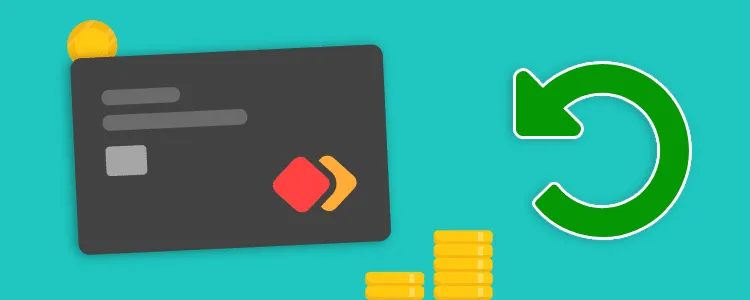What is cancellation? Meaning and practical applications

Cancellation is a term that often occurs in the financial world, but what does it mean exactly? In this blog, we dive deep into the concept of cancellation, how it works, and why it's important to understand. Whether you are an entrepreneur who works with payments or a consumer who wants to reverse an incorrect collection, the concept of cancellation can help you better manage financial processes.
What does it mean to cancel?
Cancelling is a term used to describe the process of reversing a direct debit or wire transfer. This may be necessary if a payment error has been made, for example if an amount has been wrongly deducted from your bank account. It's a way to get your money back if something went wrong with the transaction.
How does cancellation work?
The bank's role
When you cancel a direct debit, ask your bank to refund an amount that has been deducted from your account. The bank has specific procedures for this. The process usually goes like this:
- Identify the error: Do you notice an incorrect charge on your bank statement? Note the amount, the date of the charge, and the recipient.
- Contact your bank: Contact your bank as soon as possible. This can often be done online via the banking app or by phone.
- Cancellation request: Indicate the amount you want to withdraw and why. The bank will then process this.
Cancelation deadlines
It is important to know that there are installments associated with reversal of payments. For SEPA (Single Euro Payments Area) direct debits, for example, you can submit a cancellation request up to eight weeks after the charge without giving a reason. If you suspect that there has been a fraudulent collection, you even have thirteen months to report it.
Possible costs
Although many banks do not charge for withdrawing an amount, it is wise to check this beforehand. Some banks may charge an administrative fee to process a cancellation request.
Why Is Cancelling Important?
Consumer protection
Cancelling offers consumers protection against incorrect or unwanted charges. It gives you the ability to respond quickly to unjustified payments and ensures that you don't automatically lose money in wrong collections.
Business Management
For companies, understanding cancellation is also crucial. When customers cancel a payment, this can affect the company's cash flow. It is therefore important to have a good collection and payment system and to inform customers about the correct procedures.
Practical applications of cancellation
Erroneous payments
One of the most common reasons for cancelling is an incorrect payment. This can happen due to human error, such as an incorrectly entered amount or account number, or technical errors in the payment system.
Unfair collections
Sometimes a company can wrongly carry out a collection. This can happen due to an administrative error or a misunderstanding. In such cases, cancelling offers a way out to get the amount wrongly debited back.
Fraudulent transactions
If you notice that fraudulent transactions have been deducted from your account, it's essential to take immediate action. In addition to withdrawing the amounts, you must also inform your bank so that they can take further steps to secure your account.
Subscription services
Many people use subscription services, such as streaming services or gyms. Sometimes, these services can continue to collect unfairly after you cancel the subscription. By cancelling, you can reverse these erroneous charges.
How do you prevent the need to cancel?
Check carefully
Prevention is better than cure. By checking your bank statements regularly, you can quickly spot and respond to incorrect charges.
Good communication
Make sure you make clear agreements with companies and service providers about payments. Keep correspondence and confirmations of cancellations carefully so that you always have proof in the event of an incorrect collection.
Manage direct debits
Many banks offer the ability to manage direct debits via their online platform. Here you can see an overview of all companies that are authorized to debit funds from your account and revoke any unwanted permissions.
Conclusion
Cancelling is an important tool for safeguarding your financial health. Whether you want to reverse an incorrect payment, correct incorrect collections, or protect yourself against fraudulent transactions, cancelling offers a solution. By understanding how the process works and what steps to take, you can respond quickly and effectively when faced with unwanted charges. Make sure you check your bank statements regularly and make use of the resources available to manage your finances. This way, you stay financially fit and prevent unnecessary worries. If you need more information, please contact us immediately!
Together, we build a system where money becomes human, growth is shared, and financial health is self-evident.





